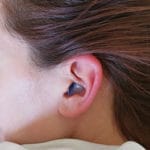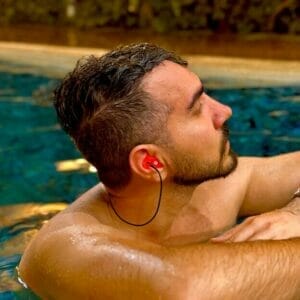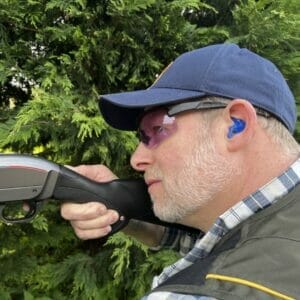Tinnitus is a noise that you can hear, but it is not coming from sounds from the outside world. It is in fact your brain projecting ‘phantom noises’. These can vary from person to person; it could be a ringing, buzzing, whooshing, throbbing or hissing, and can occur in one or both ears. In some cases, people experience the sound of music or singing, which in theory doesn’t sound too bad – however, the lack of ‘off switch’ can make it become quite debilitating.
People may experience Tinnitus for short periods of time e.g. for a few hours after a music concert, however for many, once you have tinnitus, it stays with you for life. According to the British Society of Audiology, 1 in 8 people in the UK suffer with Tinnitus. It can impact on your ability to concentrate and hear other external noises, and may even lead to psychological distress.
Currently there is no cure for Tinnitus – so, where possible, it is important to take proactive measures to prevent getting tinnitus.
Read on to find out what the causes are, and how you can take steps to lower the risk of getting Tinnitus, or how to prevent it getting worse.
The causes of Tinnitus
There are number of causes which have been linked to Tinnitus, including conditions such as diabetes or Meniere’s disease. However, we will be focusing on the ones related to your ear and hearing loss.
Noise induced hearing loss (NIHL)
The inner ear has tiny, delicate hairs which move in relation to the pressure of sound waves. This triggers cells to release an electrical signal through the auditory nerve to your brain, which interprets them as sound. If the hairs become damaged – bent or broken – they then ‘leak’ random electrical impulses to your brain, causing tinnitus. This damage occurs through repeated exposure to loud noises, which is known as noise induced hearing loss (NIHL) – up to 90% pf people with Tinnitus have some level of NIHL.
Noise is measured in Decibels, and any exposure over 85dB can lead NIHL. The British Tinnitus Association have created a table which shows the dB level different noises are, and how long you can safely be exposed to them before you need to act.
Source: How loud is loud – https://www.tinnitus.org.uk/how-loud-is-loud
As the table highlights, those working in noisy environment such as construction, factory or a musician/concerts, are at a high risk of noise induced hearing loss.

Other ear-related factors which may cause tinnitus
- Age induced hearing loss
- Ear infections. Repeated ear infections can lead to tinnitus. You may experience repeated ear infections if you are a regular swimmer/surfer/water sports enthusiast
- Perforated eardrum
- This is when your ear drum becomes perforated i.e. has a hole in it
- It can be caused by infections, changes in air pressure e.g. when flying, and exposure to loud noises

Tinnitus – how to take action
Unfortunately, as mentioned earlier, there is no cure for Tinnitus. However, if you do suffer from Tinnitus, using hearing protection can help ensure that further damage is not done and prevent the tinnitus getting worse. If you are reading this and you do not have tinnitus, then by using ear protection you are ensuring you are protecting your ears and reduce the risk of getting it in the future.
Snugs custom fit earplugs offer maximum protection as they are moulded to the exact shape of your ears, and offer all-day comfort through being made from a medical grade soft silicone. A number of products across the Snugs Range can help you with the prevention of/dealing with Tinnitus:
- SnugsShield (Work) – it’s important to avoid things that will make your tinnitus worse, such as stress or exposing your ears to loud noises. SnugsShield (Work) custom fit hearing protection with attenuated filter will ‘quieten’ the noise and reduce the dB level to safer levels. A must-have for those working in industrial environments, or doing DIY at home

- SnugsShield (Music) – music concerts are great fun but very loud, especially when near the speakers. Our custom-fit ear protection for music concerts is discreet; the attenuated filter reduces dangerous levels of noise but means you can still enjoy the same concert experience, without aggravating your Tinnitus
- SnugsShield (Shoot) – loud banging noises can damage your ears, so if you are at the shooting range you need to use ear protection. SnugsShield (Shoot) is our custom-fit plug with filter designed to ‘close-off’ outside noise at the sound of a gunshot
- SnugsPro/SnugsGo – It’s important when listening to music with your personal devices to keep the volume low. Using custom fit tips for your earphones provides passive noise isolation, so you can listen at lower safer volumes and still enjoy the same sound experience
- SnugsAqua (Protect) – tinnitus can be caused by repeat ear infections, a common problem in regular swimmers and watersport’s enthusiasts. Use SnugsAqua (Protect) to keep the water out of your ears, and reduce the risk of getting ear infections.

- SnugsFlight – hopefully we will be able to travel again soon. If you experience troubles with your ears and being able to handle the changes in air pressure from flying, then you are at risk of perforating your ear drum. SnugsFlight is our custom fit earphone solution with equalising air pressure filter, to help your ears cope with altitude changes when flying.
If you are looking to purchase custom fit earplugs to help with your tinnitus, or are looking to protect your ears and your hearing from any damage, please do not hesitate to contact the Snugs team with your story and for advice on what will work for you.
Sources:
https://www.tinnitus.org.uk/fa
https://www.nhs.uk/conditions/tinnitus/
https://www.mayoclinic.org/diseases-conditions/tinnitus/symptoms-causes/syc-20350156
https://www.webmd.com/a-to-z-guides/understanding-tinnitus-basics











